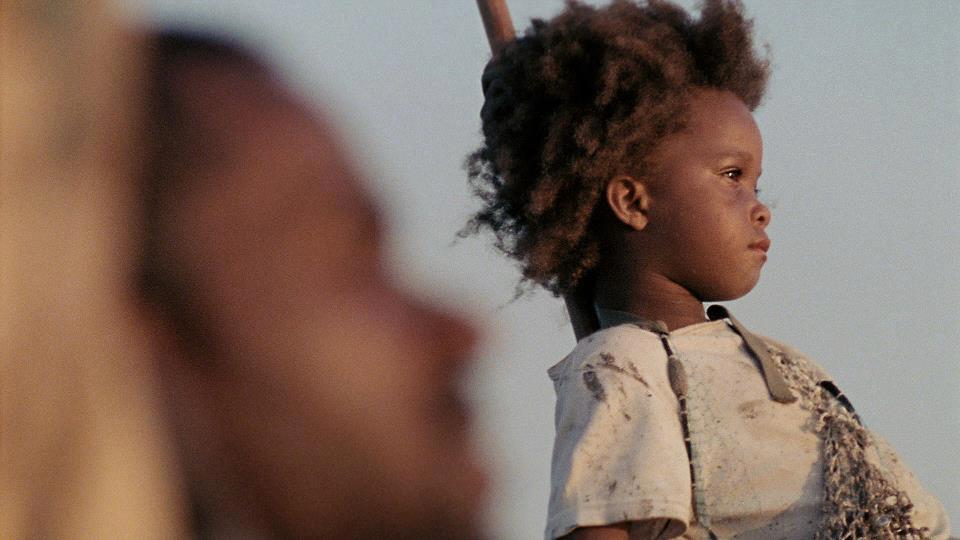
Naming Rites: Rewriting Preconceptions With a Name Change
A version of this story ran in the July 2013 issue.
Above: Quvenzhané Wallis in Beasts of the Southern Wild
It might have been my name all along.
Many of us know about research suggesting that having an “ethnic” name reduces an applicant’s chance of getting a job-interview callback. In 2001 and 2002, researchers at the University of Chicago Graduate School of Business and the Massachusetts Institute of Technology sent 5,000 fake résumés to hiring employers. The fake applicants’ names were made to sound either distinctively Anglo (e.g. Gregory Adams) or identifiably African-American (e.g. Jamilah Jones). The fictitious job seekers with white-sounding names were 50 percent more likely to get called for an interview.
I have had what most people would consider a decent job since last December. I got it just a few months after I began using the name Ike Evans on my applications. This might not seem like a big change—I.K.E. happens to be an acronym of my initials—but it should be obvious what I was up to. I justified the subterfuge by telling myself it was a sociological experiment, and I put the odds at no better than even that it would actually have an effect on my job search.
Then I got a callback. Then a second interview. Then a third interview, with the executive director. Now, six months into my new job, I find that I care very much about convincing my new co-workers that what they signed up for (Ike, the crisp, smart, professional man who snagged the job) is what they got, even though they’re now aware of the lesser-known quantity named Imani who is part of the package.
This split reminds me of the countless ways that black people are expected to thread the needle between appropriate awareness of and inappropriate obsession with what the white world thinks. That often means deflecting a white suspicion that black people think racism determines everything. Of course we think racism is no excuse for not trying. Of course we believe in spit-shining that résumé, putting that best foot forward, working hard. Of course…
On the bright side, it is 2013, and by now there are white people who are hip enough to these issues to be able to have an intelligent discussion about them. Research and experience both show that there is hope of surmounting implicit bias, even if we struggle to clear it completely. A favorite example is the way that symphony orchestras have short-circuited endemic sexism through the simple device of blind auditions.
But a name is not just any designation. A name is not inherent. It reflects the namer’s assumptions about and hopes for how a child will be regarded by the world. It tacitly positions the child as a proving ground where historic aspirations, contemporary realities, and the child’s own needs vie for salience.
This was explicitly illustrated by 9-year-old Quvenzhané Wallis, nominated for a Best Actress Oscar for her star-making turn in Beasts of the Southern Wild. Quvenzhané became something of an anthropological curiosity in the weeks leading up to the Academy Awards earlier this year, not least because her insistence on enjoying the ride, smiling and styling for the cameras, clashed with the long-standing belief that children—to say nothing of children of color—are best seen and not heard.
Moreover, even in 2013, African-Americans—especially in prestigious and hypercompetitive fields—are expected to answer accusations that they haven’t paid adequate dues. This poses a dilemma for a population whose marginalized status all but guarantees a preponderance of upstarts, late arrivals, and disruptive and interrupting presences. And it’s true in spades for a child with no prior acting experience. I couldn’t have been alone in cringing at the thought of Quvenzhané scoring an upset over her more established counterparts, winning in the bargain immortality as an entry on the “Oscar Travesties” lists that are all the rage among cinephiles.
And then there was her name. Oh my god did people not know what to do with her name. There was no more extravagantly silly moment this year than the sight of a TV reporter, struggling with the pronunciation, giving up and saying to her in jest, “I’ll just call you ‘Annie’ instead.” (Annie is the character Quvenzhané will play in an upcoming remake of the 1982 film about the eponymous orphan.) The girl’s prideful response—“No, my name is Quvenzhané”—framed the exchange as the kind of wince-inducing teachable moment that our cultural divides continue to make necessary.
Of course there are plenty of people who think Quvenzhané is as cool as names come, just as people are forever telling me that my name—Imani—is cool. I believe that they mean it. But I also see evidence of a continuing bemusement about black expressive culture that our naming habits, as much as anything else, represent. I may not get the worst of it, because my name has an obscure Arabian quality to it, but with Jamilah—well, you know exactly where that came from.
Which brings me back to the résumé. It turns out I’m actually playing a double game with my name change, since Imani doesn’t just code black, it also codes female. Ike, on the other hand, is the nickname of one of the 20th century’s towering icons of white manliness—President Dwight D. Eisenhower. With just one tweak I can finesse one set of implicit biases (about race) while mobilizing another set (regarding gender) to work in my favor.
This can be heavy stuff, so I like to be lighthearted about my quirky name and the quirky ways it acts in the world. But count me among those who can’t help rooting for the special kind of willfulness it takes to create a brand new word for a person, even though that new word may send them hurtling headlong into age-old issues of identity, inherited and invented.


